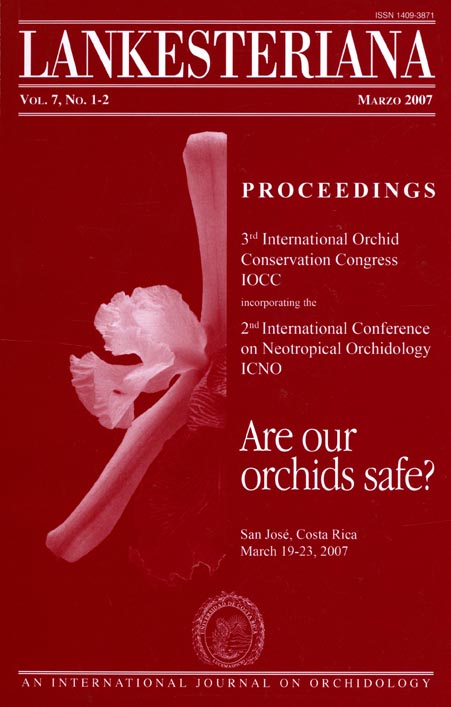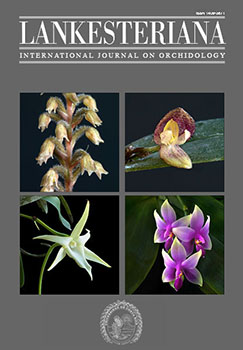Are some life-history strategies more vulnerable to the genetic consequences of habitat fragmentation? A case study using South Australian Caladenia R. Br. (Orchidaceae) species
DOI:
https://doi.org/10.15517/lank.v7i1-2.19519Keywords:
habitat fragmentation, life history, population genetics, Caladenia, pollination, South AustraliaAbstract
Habitat fragmentation, through land clearing, has been attributed in the demise of many species of plants and animals throughout the world (Kinzig and Harte 2000). Not surprisingly, much research effort has been devoted toward understanding the dynamics of populations subject to fragmentation.
Downloads
Downloads
Published
How to Cite
Issue
Section
License
According to the Open Access policy promoted by the University of Costa Rica, all the papers published by Lankesteriana are licensed under the Creative Commons copyright and can be downloaded free of charge. The journal holds copyright and publishing rights under the CC BY-NC-ND 3.0 CR license.
Before the publication of the materials submitted by the author(s) in LANKESTERIANA, the author(s) hereby assign all rights in the article to the Lankester Botanical Garden.





